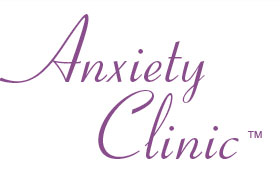Anxiety Attacks
What you need to know about anxiety attacks and panic attacks
Anxiety attacks, also known as panic attacks can affect anyone and can strike unexpectedly. Anxiety attacks manifest differently in different people, however experiencing terror, being trapped and feeling like you're having a heart attack are all relatively common symptoms. The secret of dealing with anxiety attacks often eludes sufferers. Fortunately you'll find unique, honest and useful anxiety attack information both here and on our other specialised websites. If you're already through gathering information and are actively seeking recovery treatment for your anxiety attacks - you should look at our treatment page.
The truth behind your anxiety attacks
Many of our clients come to us with anxiety attacks (panic attacks) believing the anxiety attacks are the actual problem. However, the truth is that anxiety attacks are almost always a symptom of something else - rather than the actual problem itself. The reason people focus in on anxiety attacks being the perceived problem is that they feel so intensely unpleasant when they happen. Thus no sufferer can be blamed for paying particular attention to how bad they feel during an anxiety attack and making the assumption that the anxiety attack is what they must address (get rid of).
In reality, an anxiety attack is almost always the venting of emotional turmoil. The mind and body can only hold a certain amount of underlying emotional stress before something has to give. We refer to this 'breaking point' as being a 'threshold'. The thing that most sufferers miss is the gradual build up of emotional tension within their system as this is often steady (almost creeping) in its progress. Either failing to recognise, or in some cases ignoring this build up of emotional tension represents a good chunk of the actual problem. This is essentially the first phase of the anxiety attack cycle.
Once a sufferer has experienced the terror of a full blown anxiety attack the second phase of the cycle kicks in. The mind is programmed (by default) to prioritise remembering and dwelling upon emotionally charged thoughts and experiences. This is a big part of how we evolve as humans and also dictates (to a degree) who survives and who doesn't. Thus this programming ranks highly in both who we are and how we function.
Putting this in terms of anxiety attacks, we've already discussed just how emotionally devastating a severe anxiety attack can feel. Thus it would make sense that the mind would prioritise our attention towards such an event. Our attention in this case would be perceived through the fear of experiencing such emotional terror again in the future. In order to do this the mind consistently pops unsolicited thoughts into your awareness bringing your attention to the possibility of having another anxiety attack.
Although the thought of having another panic attack is essentially a fabrication of your own mind - in the moment you have those thoughts you actually feel (there and then) a creeping worry and anxiety inside. This is an emotional response to your thought processes rather than to an outside event. The consistent unsolicited thoughts followed by the worry and anxiety of experiencing another anxiety attack actually begins to build up within your physical and emotional system.
Essentially a cycle between unsolicited thoughts, dwelling on those thoughts and feeling bad emotionally begins to escalate. With each cycle the internal tension increases, pushing you ever closer to the threshold where your mind and body can no longer tolerate the pressure. In effect, the next anxiety attack ceases to become a matter of 'if' - it becomes a matter of 'when?'
Hopefully this information has given you an awareness of how the anxiety attack cycle works and self-perpetuates. The good news is that it doesn't have to be this way. Even if you're already deep into the anxiety attack cycle - with the right help you can get out and have your life back.
Elements of the anxiety attack cycle

The anxiety attack cycle comprises of several elements that you need to understand. The first element is that it's automated, so this means it tends to be run automatically, habitually and (generally speaking) without you actually noticing what processes are going on behind the scenes.
The second element is that it is self perpetuating or self feeding as a cycle. This means that if it's simply left alone it continues to run and can spiral out of control over time. Thus it is not something you want to hope will go away on its own.
The third element involves how your thought processes instruct your emotional centre what specific emotion to feel (and at what intensity). After all it is the emotional build up within your mind and body that is responsible for the anxiety attacks happening at all.
We find that addressing the third element causes the other two to fold on their own. The reason being that the first two cannot continue to function if the third element is no longer contributing to the anxiety attack cycle.
In order to understand how the mind hides its processes from you and how to become more aware of how you really work - take a look at the next section.
The hidden processes you need to become aware of
Have you ever been stuck in traffic when you're late for an appointment? Do you find you talk to yourself in your head about being late, cursing the car in front and ranting about how you always seem to get caught up in traffic?
It's quite probable that thinking about being late makes you feel worried, cursing the car in front makes you feel angry and ranting about how you always seem to get caught up in traffic makes you feel frustrated or perhaps even despondent.
It's also easy to blame the traffic congestion for how you feel, but alas you have already fallen foul of the first element we mentioned in the above section. What we mean by this is that your internal processes are (to a great degree) filtered out of your awareness. Your focus is on the traffic and how you feel - not on the thought processes you are running in your head. So long as your thought processes remain outside of your awareness, you can't question or change them! This is one of the main reasons people get trapped in anxiety disorders.
Let's look at this from a slightly different angle. We know that having a rant in your head can potentially make you feel worried, angry, frustrated and despondent. (and these are only a few possibilities). But in reality, how does the rant affect things on the outside? Does it make the cars move or disappear? Does it slow down time so as you're not late? Thus in essence, you not only make yourself feel bad (through your own thought processes), you blame feeling bad on something else completely (the traffic) and neither your thoughts nor your feeling bad make the slightest difference to the reality of you being stuck in traffic. It sounds insane doesn't it - but that's the way we're wired to work on autopilot.
Gaining and maintaining an awareness of how we work internally is pivotal in overcoming any psychological disorder.
Let's now consider what happens with anxiety attacks. Let's say you need to go to the supermarket to get some milk and your mind pops a thought into your head that you may have an anxiety attack when you're there. The thought provokes a mild feeling of unease, so you start to play out different scenarios of what may happen at the supermarket. The more you play out scenarios (of what you fear may happen) the more anxious you begin to feel inside. The more anxious you feel the more you think about what may happen and the cycle continues.
By the time you get to the supermarket (if you haven't already backed out) you're already feeling tense and every twitch, tingle or sensation in your body makes you think you're starting with an anxiety attack.
Now, let's look at this from a reality perspective rather than a thought and emotional perspective. When you decided you needed some milk, were you at that moment having an anxiety attack? No. When you had the thought that you may have an anxiety attack at the supermarket, were you in reality at that moment having an anxiety attack? No. When you arrived at the supermarket and became very aware of every little detail and feeling in your body, were you at that moment having a panic attack? No.
Thus from a reality point of view everything was fine - no anxiety attacks. However, from a thought, emotional and behavioural perspective you did everything in your power (albeit not on purpose) to bait an anxiety attack at the supermarket. The more you think, dwell and worry - the more tense you feel and the closer you get to reaching the threshold where you need to vent (have an anxiety attack).
How to crack the anxiety attack cycle

The most effective way of cracking the anxiety attack cycle is by addressing your unsolicited thoughts. It would make sense that the unsolicited thoughts lead to rumination, dwelling and playing out different scenarios (you don't want to happen), which in turn leads to unpleasant emotions such as fear and anxiety. The build up of fear and anxiety compounds until your mind and body reach the threshold limit - which in turn triggers and anxiety attack!
If you neutralise the unsolicited thoughts - the whole process falls apart and is unable to cycle.
You're probably thinking that the unsolicited thoughts 'just happen' beyond your control and that you can't help worrying. That's OK and you're just doing what comes naturally to you as a human. However, as you've already discovered, if the cycle is permitted to continue - so will the anxiety attacks. Something has to change somewhere.
The mind in many respects works in a very predictable and mechanical way. Have you ever noticed that it's far more difficult to remember trivial things like where you put your car keys, whereas experiences which caused you pain, fear or suffering are easy to recall? The mind has a filing system which it prioritises in a simple way. If a thought or experience elicits minimal (or no) emotional response, the mind considers it to be unimportant and discards it to the depths of the filing system or may even delete it completely. However, if the thought or experience elicits a strong emotional response (fear, jealousy, anxiety) the mind instantly marks it as 'important' and stores it at the top of the filing system.
The mind is basically a thinking machine and a thought generator - that's its job. So when you're drifting along through life your mind generates thoughts. Sometimes the thoughts are associated with what you are doing at the time, whereas other thoughts (unsolicited as we call them) seem to pop into your mind from nowhere. Of course, they don't really come from nowhere... they come from your filing system. The higher the thought is stored in the filing system (because of high emotional connection), the more likely that thought will be popped into your awareness (supposedly at random).
The unsolicited thoughts not only end up high in the filing system because of the intense emotional connection, but each time the thought is popped into your awareness the dwelling and playing through of further scenarios adds more associated emotion to the thought. Thus the unsolicited thought becomes re-filed and duly recycled indefinitely. This is how you remain trapped in the anxiety attack cycle.
So how do we stop this?
The principle is simple. Neutralising the emotion connected with the thought causes the mind to reconsider its importance and discard it. When a thought is discarded it isn't filed for future attention which in turn breaks down the anxiety attack cycle. It may be that you have numerous thoughts you dwell upon, so it's just a matter of being systematic and neutralising each one as it arises. You may be thinking (as anxious people do) that these thoughts will simply come back, however your experience of repetitive thoughts to date has always been as a direct result of the emotion attached to them and the minds programming telling it to recycle what it believes to be important.
How we can help you overcome your anxiety attacks
We've been helping people overcome anxiety attacks and other anxiety disorders for over fifteen years. The technology we use is leading edge, simple to understand and our services are both accessible and affordable.
We run an established Anxiety Clinic in Staffordshire working with clients both face to face and for those who live further afield through online consultancy (with the very same experts). For online consultancy we use Skype (a free download) for video and telephone consultations. Thus no matter where you are located in the UK - we can work with you.
We also said that our services are affordable - and they are. This is because by using online consultancy we keep our overheads low and are able to maintain reasonable fees whilst providing outstanding service.
One hour Skype (Video or Telephone) Consultation - Just £69.00
90-Minute Face to Face Consultation (at our Clinic in Staffordshire) - £95.00
Fees are payable on a flexible pay as you go basis.
Before you make a decision to commit to working with us, now may be a good time to take a look at our guarantee below.
Anxiety Clinic - Money back guarantee

We take our reputation very seriously, whilst at the same time understanding you may have a healthy level of skepticism regarding what is and isn't possible. Thus we make this guarantee:
If by the end of your initial consultation you're not convinced we can help you overcome your anxiety attacks and get your life back - there will be no charge for that session. The only thing you can lose are your anxiety attacks.
Remember that all of our now recovered clients are ordinary people just like you. The only difference is that they committed to help themselves by taking action. If you're happy to put things off and make excuses, then that's up to you and we wish you all the best. However, if you've had enough of suffering and want your life back - you can have it in a matter of weeks. The only thing that potentially stands between you and recovery... is sitting back and doing nothing.
I owe it to myself to find out more about Face to Face Consultations (In Staffordshire)
I can't get to Staffordshire so I'd like to learn more about Online Consultations (Nationwide)







